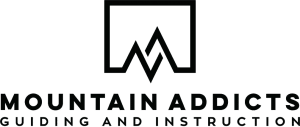All participants must complete the waiver acknowledgement before booking.
Curriculum: The AST 1 Revelstoke, with a field trip to Rogers Pass, features a nationally-standardized curriculum developed by Avalanche Canada. This course is the essential first step in developing your decision making framework for venturing into winter backcountry avalanche terrain. Over two days, you will spend 8 hours in the classroom in Revelstoke learning theory, followed by a trip to the Rogers Pass backcountry putting theory into practice. All participants must read and agree to the terms of the waiver before booking an AST course.
At the end of the course you will be able to:
- Recognize avalanche terrain
- Match terrain to the avalanche hazard
- Demonstrate methods of group travel that reduce risk in avalanche terrain
- Interpret the avalanche forecast
- Use avalanche rescue equipment and understand the basics of companion rescue
- Understand factors that affect the seasonal snowpack
- Know how to navigate the Rogers Pass Winter Permit
- Obtain the AST 1 certificate
The AST 1 is two days back-to-back. You will see the first day of the course in the product calendar. After selecting “Book Now” you will see both course dates.
